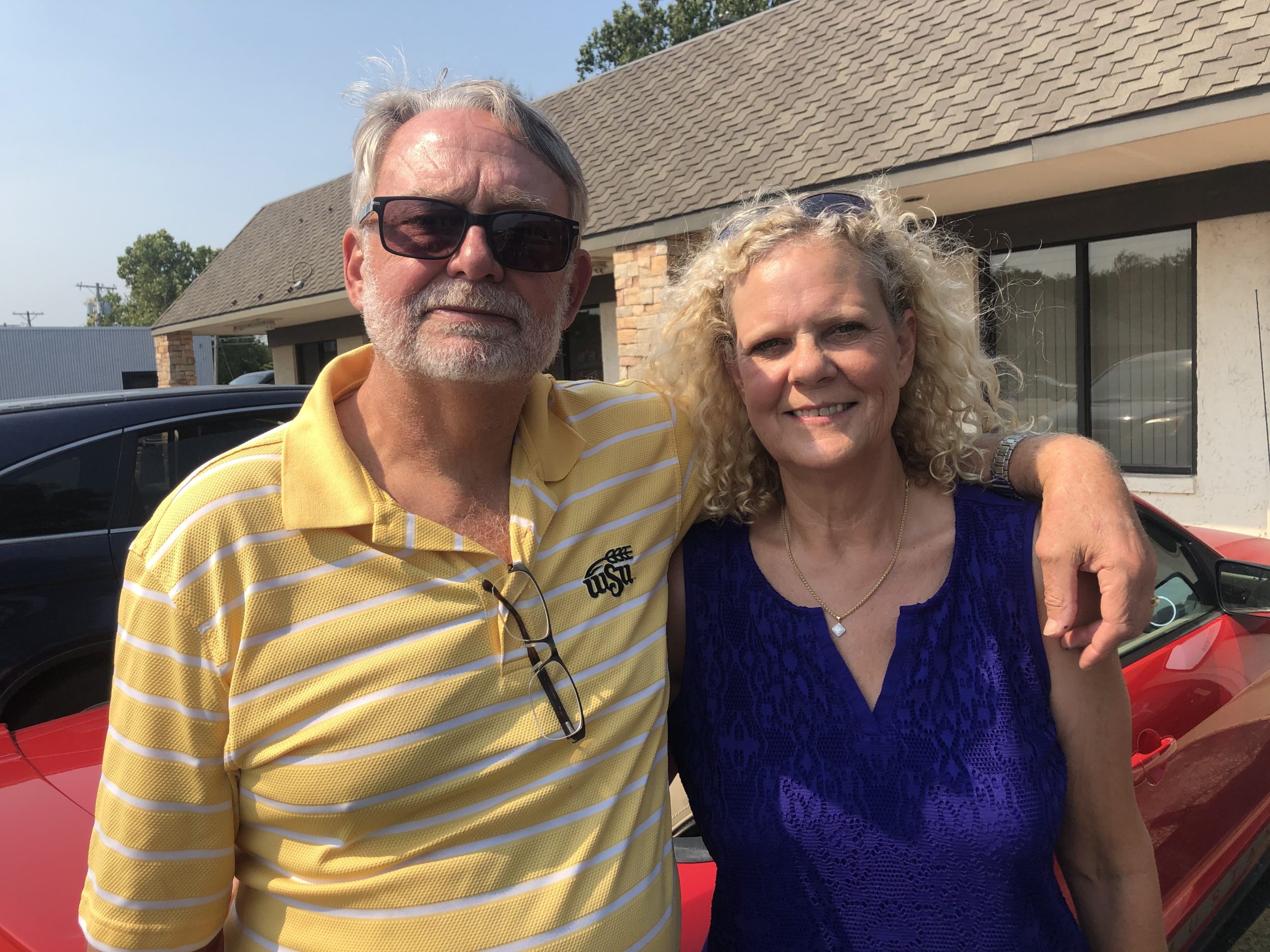David Welch watched as his father, sister and cousins suffered from Alzheimer’s. So when the Wichita businessman started having memory problems at age 60, he had a pretty good idea of the source.
He also knew the problem was bigger than himself — as big, in fact, as the 5.4 million Americans currently estimated to have the devastating degenerative neural disease.
Welch, longtime owner of Welch’s Heating & Air, learned from his physician about drug research studies designed to find a treatment. He quickly concluded that getting stuck with a needle for two hours every month is a small price to pay for potentially finding that treatment.
“Nothing’s ever going to get fixed without studies,” Welch said. “I really believe that.”
Welch began taking part in a drug trial four years ago. The drug, aducanumab, has been shown to reduce abnormal clumps of proteins in the brain called plaque, which are believed to cause Alzheimer’s by interfering with neuron brain cells. Massachusetts-based drug giant Biogen suspended the research in March 2019 when data showed the drug did not appear to produce a significant benefit. Last fall, however, Biogen announced that additional analysis showed the drug appeared to help slow the degenerative effects of Alzheimer’s. Biogen got approval from the Food and Drug Administration to restart the study, and Welch got his first injection in over a year last month.
Welch believes aducanumab has helped maintain his cognitive abilities about where they were before the study. While that’s difficult to measure precisely, he said MRIs of his brain show a definite improvement.
“I’ve done great with it. When they took my first MRI, I had plaque, and today, I don’t have any.”
The Alzheimer’s Association is also hopeful. Breana Tucker, program director for the association’s central and western Kansas, called the research “really exciting.”
“If it is approved, it will become the first therapy to treat the cognitive and functional decline (caused by Alzheimer’s). That would be huge.”
“It’s not a cure,” she said, “but hopefully it would slow the progression.”
Tucker added that the drug is intended for people with “mild cognitive impairment and those in early stages of Alzheimer’s disease.”
The personable Welch wouldn’t strike anyone as a stereotypical Alzheimer’s patient, arriving for an interview in a red convertible with his wife, Penne. But he says the disease has taken a toll.
In addition to memory problems, Welch said the disease occasionally has affected his ability to do things as simple as walking. “I’d tripped over tree roots and broke some bones in my neck,” he said. “One of the first things you lose is the automatic function of walking. When you get dementia, you have to teach yourself how to watch every step.”
Once his Alzheimer’s was diagnosed, Welch credits his physician, Dr. Joseph Sack, with alerting him to the possibility of participating in a drug study.
“I have a great doctor,” he said. “He just knew the right people.”
Welch went through tests and was told he had a moderate stage of Alzheimer’s, qualifying him to participate in the aducanumab study. He gets his injections at Via Christi Research, part of Ascension Via Christi St. Francis. Welch said he thinks about 15 residents of south-central Kansas have taken part in the study, which had more than 3,000 subjects total.
Welch said another part of successfully managing the disease has been taking anti-stress medication. “The stress of the disease sucks,” he said. “Sometimes I just can’t remember anything. Usually it’s a stressful situation.”
Welch started his heating and air conditioning business 33 years ago, eventually building it into one of the area’s most successful residential and commercial outfits, even featuring Wichita State basketball coach Gregg Marshall in its commercials. Last year, the Welches decided to sell it to Reddi Industries, although David continues to work there as a salesman.
“It’s good, you know,” he said. “Running a business is very stressful.”
The FDA has announced that it will give aducanumab an expedited review to see if it’s ready for wider use. Tucker, with the Alzheimer Association, said that decision could come as early as next spring.
“If it does get approved, we would be advocating to make sure it would be cost effective for people,” she said.
The association continues to recommend behavioral steps to prevent or slow the disease.
Tucker descibed that as “living that overall healthy lifestyle, being active, continuing our cognitive activity and overall eating healthy. Really, what’s good for your heart is good for your brain.”
Welch hopes that being something of a “health nut” will help him. And he’s once again ready to see if an experimental drug can continue to help him and potentially millions of more dealing with Alzheimer’s.
“I am not back to where I was seven or eight years ago, but I haven’t gone backwards a lot, and I think I do very well,” he said. “I’m still driving. I’m still selling air conditioners.”












